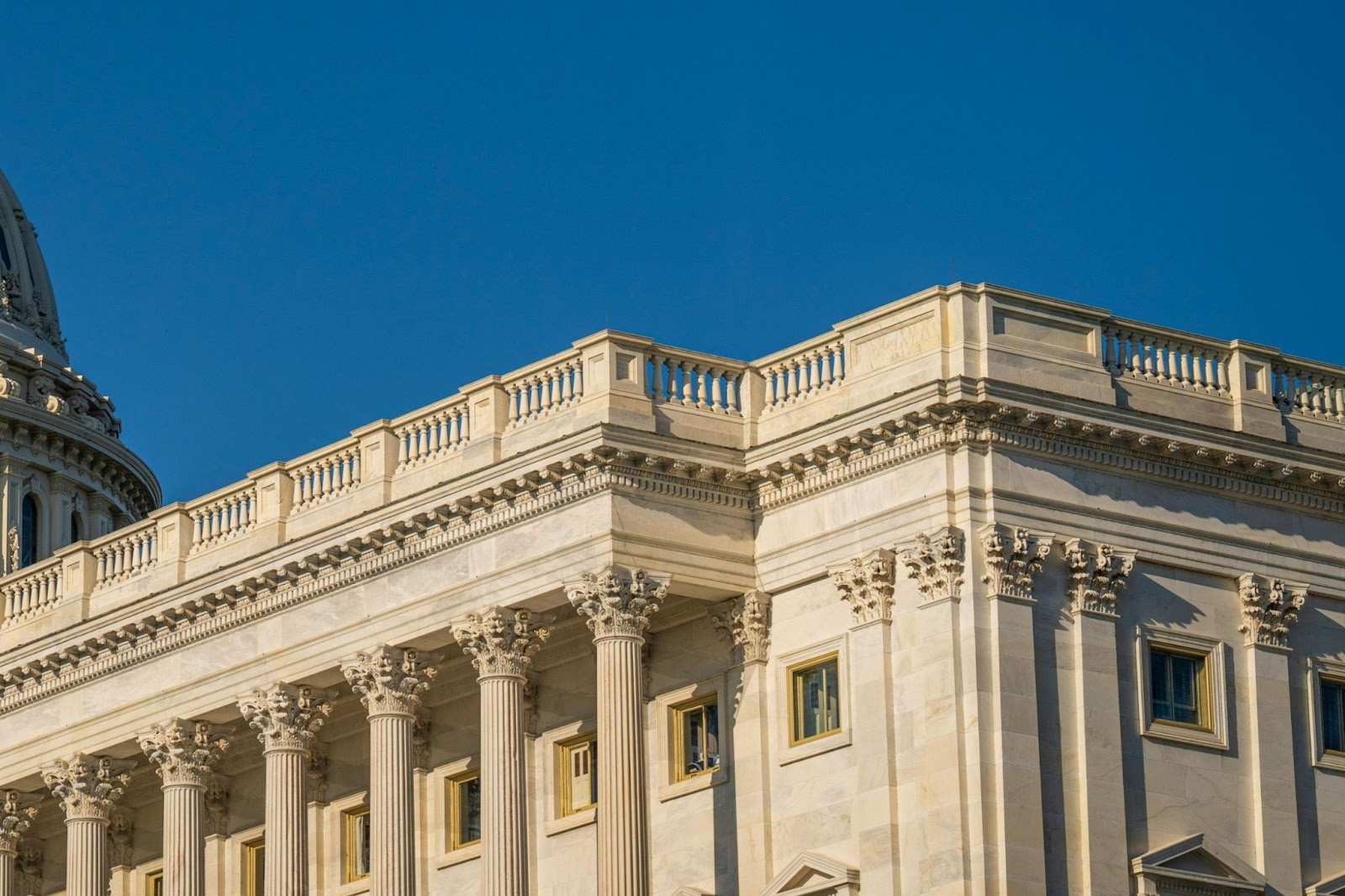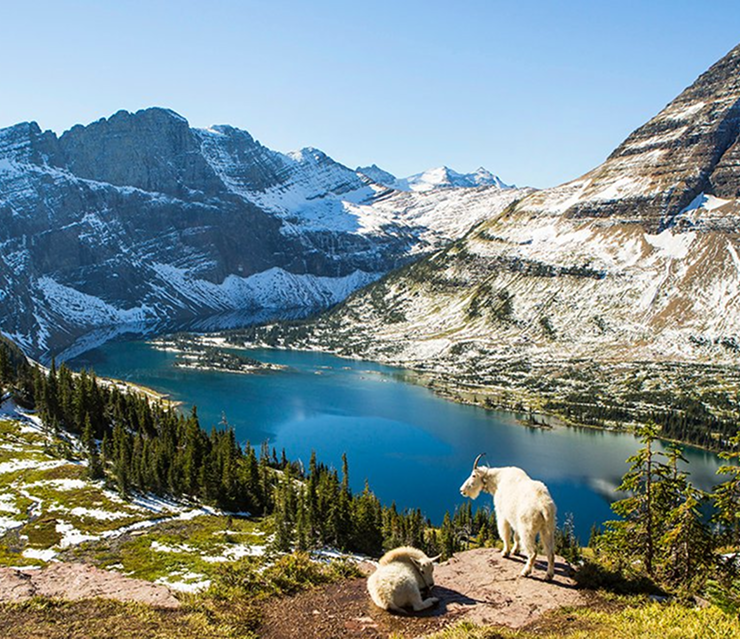Montana stands out from most states when it comes to sales tax, but what does that mean for clothing sellers? If you’ve ever wondered, “Is clothing taxable in Montana?”, you’re probably not alone.
For brick-and-mortar retailers, e-commerce businesses, and the tax professionals who support them, it’s essential to grasp how Montana’s tax rules (or lack thereof) apply to apparel sales. This guide will walk you through the specifics and help you stay on track with U.S. sales tax compliance.
Is Clothing Taxable in Montana?
In Montana, there is no state sales tax, which extends to clothing, meaning apparel purchases are not subject to sales tax; this includes everyday items like clothing and footwear. As a result, both physical retailers and e‑commerce sellers enjoy a simplified tax environment, since they are not required to collect or remit tax on clothing sales.
So, to reiterate: Is clothing taxable in Montana? The answer is no, clothing is tax‑free in this state.
Montana Sales Tax Rate on Clothing
Montana does not have a general statewide sales tax, so there is no Montana state clothing sales tax rate applied to apparel purchases. Clothing remains tax-free under normal circumstances.
However, it’s worth noting that certain tourism-related businesses, such as hotels, campgrounds, and rental car companies, are subject to additional local taxes. These include a 7% tax on accommodations and campgrounds and a 4% tax on rental cars.
Still wondering, “Is clothing taxable in Montana?” For typical retail and e-commerce sales, the answer remains no.
What Are Montana’s Exemptions and Special Cases for Clothing?
While the primary question, Is clothing taxable in Montana?, can be answered with a clear “no,” there are a couple of nuances worth noting for certain sellers. Since Montana imposes no general sales tax, clothing, including everyday wear and protective gear, remains untaxed throughout the state.
However, as mentioned above, certain businesses that cater to tourists are obligated to collect sales tax on certain items, including clothing. These vary by location and depend on specific jurisdictional requirements or laws.
Because there is no general retail sales tax, Montana doesn’t issue traditional sales tax exemption certificates for clothing. However, businesses may still need such certificates when dealing with transactions involving other exempt entities or categories (e.g., lodging or governmental purchases) outside the clothing context.
To sum up, there are specific Montana sales tax clothing exemptions to the non-taxable nature of apparel in the state, although they only apply to businesses that function in the tourism industry.
Tax on Clothing in Montana: Local vs. State
At the state level, the answer to the question “Is clothing taxable in Montana?” is no, as Montana does not levy a general sales tax on clothing or any other retail items.
However, when we consider Montana’s tax on clothes in a broader context, it’s important to consider municipal and county laws. While there are no specific local municipal or country tax rates, localities that attract a high volume of tourists, such as Whitefish, Red Lodge, Big Sky, and West Yellowstone, may impose a resort and local option tax of up to 3%. This tax is designed to fund infrastructure and services used by visitors. To qualify, a city must have a permanent population of fewer than 5,500 residents.
For proper sales tax compliance, sellers operating in these areas should confirm local rules to avoid overlooking a niche obligation.
Sales Tax Registration Requirements for Clothing Sellers in Montana
As the answer to the question “Is clothing taxable in Montana?” is a definite no, you might think that registering for sales tax is not required in the state, but that is not exactly the case.
Clothing sellers, both physical stores and e-commerce businesses, generally don’t need to register to collect sales tax on clothing in Montana at the state level. As a result, there are no state-level sales tax permits, thresholds, or filing obligations to uphold.
However, if your business operates within a designated resort community that levies a local resort or option tax, registration and compliance become necessary, because the resort tax is a local-option tax; businesses register with the local governing body of the specific resort community or resort area where they operate.
Examples:
- In Whitefish, businesses register with the City of Whitefish’s Finance Department.
- In Big Sky, businesses register and remit through a dedicated online portal, such as MUNIRevs, which is managed by the Big Sky Resort Tax District.
- In Red Lodge, businesses must obtain a valid City Business Registration Certificate and also provide a bond to the city to ensure compliance with the resort tax.
Registration is often required for all businesses operating in the district, even if they don’t collect the tax. This helps the local government keep track of who is operating within the district. A vendor allowance may be provided, which allows businesses to keep a small percentage (e.g., 5%) of the tax they collect to cover their administrative costs.
So, while there is no single state-wide registration for the resort tax, every business that sells taxable goods or services in a designated resort community must register with the local authority and follow their specific procedures for collecting and remitting the tax.
Sales Tax Filing Requirements for Clothing Businesses
In Montana, most clothing businesses do not need to file sales tax returns at the state level, since the state does not impose a general sales tax. However, for businesses operating in resort tax districts, filing and remittance are mandatory for applicable taxable goods and services, even if clothing sales tax in Montana is not typically levied.
Why sales tax is important in these resort zones comes down to local funding: the tax supports tourism infrastructure, and failure to comply can result in penalties. Filing frequency is based on how much resort tax a business collects annually, with specific guidelines as follows:
| Remittance Type | Eligibility | Due Date |
| Monthly | Businesses collecting $5,000 or more in resort tax annually | On or before the last day of the following month (e.g., taxes collected in June due by July 31) |
| Quarterly | Businesses collecting less than $5,000 in resort tax annually | On or before the last day of the month following the quarter (e.g., taxes from Jan–Mar due by April 30) |
| Seasonal | Seasonal businesses operating 4 months or less and collecting under $5,000 annually | May remit seasonally with prior approval from the local resort tax district |
District officials may proactively inform businesses of their assigned remittance schedule, but business owners are also encouraged to contact the district directly if they need clarification or confirmation about their filing frequency.
Failing to file or pay on time can lead to penalties. Late-return fees in Montana reach 5% per month (minimum $50), capped at 25%, while late payments can attract 1.5% per month, up to 15% of the tax due.
Ultimately, most businesses are free from the burden of filing for clothing tax in Montana, except those operating in resort zones. Still, adhering to the local filing schedule remains essential, helping protect your business from unexpected penalties and ensuring smooth operation in Montana’s unique tax environment.
Implications for Remote Sellers and E‑commerce Clothing Sales
Typically, Montana does not impose a state-wide physical or economic nexus law for general retail because it doesn’t have a state-level sales tax. However, businesses operating inside a tourist community area are exceptions to this rule.
- In resort communities that levy local taxes, physical nexus rules still apply. Your business may be considered to have a physical nexus if it maintains a physical presence, such as a storefront, office, warehouse, inventory, or employees, within the local jurisdiction. If that’s the case, you could be obligated to register and collect that area’s resort tax.
- Additionally, economic nexus may come into play for businesses engaging in frequent or high-volume sales within these resort areas. Local jurisdictions may define thresholds based on total sales revenue or the number of transactions in their district and expect compliance once those thresholds are met.
Out-of-state resale certificates may not be accepted by local vendors in Montana. E-commerce sellers operating or shipping into resort areas should confirm whether any Montana clothing sales tax responsibilities apply under these local regulations to ensure complete compliance.
Sales Tax Compliance Challenges for Clothing Businesses in Montana
Even in a state without a general sales tax, clothing retailers in Montana face unique compliance hurdles. Here are some crucial ones to always stay ahead of:
- Varying local rules: In resort areas like Big Sky, West Yellowstone, Red Lodge, and Whitefish, confusing distinctions exist, as some jurisdictions tax clothing with logos, while others don’t. Definitions such as “luxury” vs. “necessity” vary, making consistency difficult.
- Nexus ambiguity: Businesses with a presence in resort areas, whether through inventory, sales, or staff, must be vigilant about potential nexus, triggering local tax responsibilities even if statewide sales tax doesn’t apply.
- Tracking use tax for remote buyers: Montana’s lack of sales tax means resident buyers may still owe use tax on out-of-state goods. Monitoring self-assessed taxes adds complexity, even if you don’t charge it directly.
- Lack of tax holidays yet public confusion: While Montana doesn’t host formal tax-free events, tourists often expect relief from taxes, a misconception that can lead to customer friction or miscommunication.
With local rules evolving and few written guidelines, retailers must meticulously document sales in each jurisdiction. Ambiguity in what gets taxed can result in difficulties during a sales tax audit.
Even without a statewide enforcement, navigating Montana sales tax on clothing requires careful attention to local rules, clear definitions, and proactive tracking to avoid compliance pitfalls.
How Automation Helps Manage Montana Sales Tax
While Montana has no statewide sales tax, businesses selling in resort communities must still handle complex local rules, varying filing schedules, and potential physical or economic nexus obligations. Commenda simplifies compliance by automating calculations, registration tracking, and filing tasks specific to these local jurisdictions.
Our global sales tax platform monitors your sales activity to determine when physical or economic nexus applies and ensures you’re collecting the correct resort tax rate. It handles remittance schedules based on local requirements, monthly, quarterly, or seasonal, and keeps your records audit-ready at all times.
For in-state retailers, seasonal operators, and online sellers shipping into Montana’s tourist towns, Commenda removes the need for manual tax tracking. Real-time updates and automated error checks help reduce compliance risks and prevent costly mistakes.
Using Commenda means saving time, staying compliant with local Montana tax laws, and confidently avoiding missed filings or penalties. Book a free demo today to get started from day one.
FAQ
Q. Are clothing accessories taxable in Montana?
No. Montana does not have a statewide sales tax, so clothing accessories are generally not taxed unless sold in resort tax areas.
Q. Is there a threshold for taxable clothing sales in Montana?
There’s no state sales tax threshold, but local option taxes may apply if you sell within certain resort communities.
Q. How do Montana sales tax rules apply to children’s clothing?
Children’s clothing is not taxed at the state level but may be subject to local resort taxes based on business location.
Q. Are there specific rules for clothing sold at a discount in Montana?
Discounted clothing is treated the same as full-price clothing; untaxed at the state level but possibly taxed locally.
Q. Does Montana exempt clothing purchased for resale from sales tax?
Yes. Resale purchases are exempt if you provide a valid resale certificate, including out-of-state resale certificates.
Q. How do Montana sales tax exemptions apply to used clothing?
Used clothing is not taxed by the state, and is unlikely to be sold as merchandise in resorts, but if sold, it may still trigger local tax obligations.
Q. Are clothing alterations taxable in Montana?
Alteration services are not subject to Montana’s state sales tax but may be taxed locally if offered in resort tax zones.
Q. Do Montana sales tax rules apply to out-of-state sellers selling clothing online to Montana residents?
Montana does not impose sales tax on remote sellers, though local resort taxes may apply if nexus is established.










